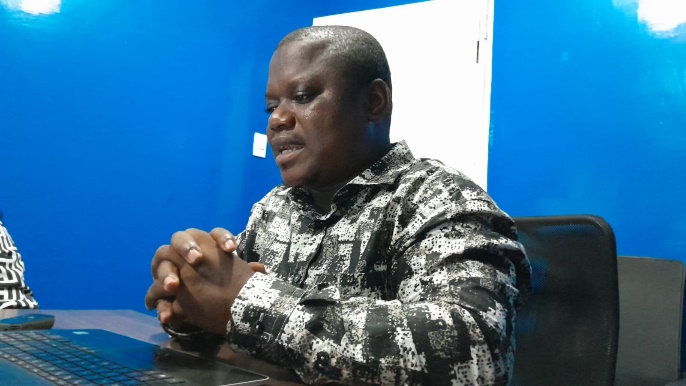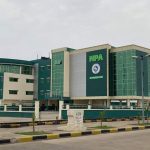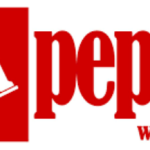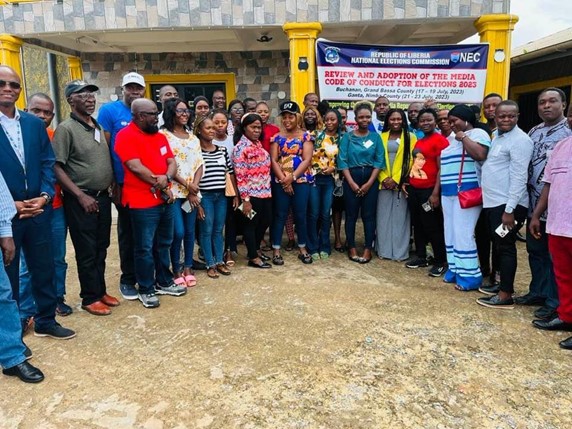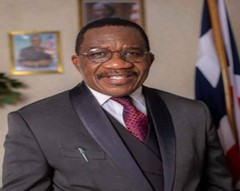The Center for Transparency and Accountability of Liberia (CENTAL) has provided a descending view on the establishment of an Asset Recovery Taskforce in the presence of the Liberia Anti-Corruption Commission (LACC).
In a press release issued Monday, March 11, 2024, CENTAL said it believes that the Office of Asset Recovery is not the appropriate channel for the attainment of anti-corruption objectives due to the fact that itessentially assumes the role of the Liberia Anti-Corruption Commission (LACC), thereby making it a parallel LACC, and it is not independent, as it is situated in the Presidency and includes supporters of Boakai’s 2023 Presidential bid.
On March 5, 2024, President Joseph Nyuma Boakai issued Executive Order No. 126 (EO#126), establishing the Office of Assets Recovery. The office has been empowered with the legal mandate and state funding to investigate and retrieve wrongfully acquired government assets and seek the extradition of suspects involved if they were found to be out of the country.
This action was later followed by the March 8, 2024 appointment of Task Force members, including Cllr. Edwin Kla Martin, a former Executive Chairman of the Liberia Anti-Corruption Commission (LACC), as Chair of the committee, and members including Alexander Cuffy, former head of the Financial Intelligence Unit now Agency (FIA), Dr. Ranny B. Jackson, former Superintended of Bong County, amongst others.
But in its statement, CENTAL maintained, “Whilst we welcome President Boakai’s determination to follow through on earlier statements regarding tackling corruption, we believe that the Task Force is not the appropriate channel for the attainment of anti-corruption objectives…” the CENTAL release observed.
CENTAL argued that the LACC and the Asset Recovery Office have parallel functions, citing sections of the LACC Act of 2022 and President Boakai’s Executive Order #126.
According to the group, “Section 4.1 (d) of the LACC Act of 2022 gives it the power ‘to, independently and in the name of the Republic of Liberia, investigate and prosecute any and all acts of corruption’.
“Further, Section 5.2(j) provides that the LACC shall serve as the agency of the government of Liberia with primary responsibility for the investigation of all acts of corruption.
“Meanwhile, EO#126 provides in Count 2 that the Taskforce has the mandate to ‘constitute an investigative panel to probe into Liberia’s stolen and suspicious assets’. Further, Count 4 of EO #126 mandates the Task Force to ‘initiate immediate criminal prosecution and civil litigation where applicable on behalf of the Government of Liberia’.”
With LACC having primary responsibility for investigating and prosecuting corruption, CENTAL said it holds the view that giving the Task Force the power to investigate assets lost to corruption does not only creates confusion but serves to undermine the LACC.
Section 5.2 (f) of the LACC Act of 2022 provides that the Commission shall serve as the primary agency of the Government of Liberia authorized to make and receive requests for the purpose of international mutual legal assistance in the combat against corruption.
Parallelly, Count 7 of EO #126 mandates the Task Force to “employ diplomatic and lnterpol means to extradite individuals identified as suspects that are outside the bailiwick of Liberia in order to bring them under the jurisdiction of the investigative team.” With LACC being the primary agency of government authorized to make and receive requests regarding international mutual legal assistance, including for extradition, CENTAL said it believes that LACC is being further undermined or its function is being usurped.
Section 5.2(n) of the LACC Act provides that the LACC serves as the agency of the Government of Liberia for the purpose of commencing legal proceedings on behalf of and in the name of the Government of Liberia, or of any public body, organization, or entity to recover any loss suffered by the government or such public body, organization or entity or any benefit received by any person or persons, natural or legal, as a result of any act of corruption. Section 5.2(j)(ii) of the LACC Act further echoes the need that LACC coordinates with other agencies in “tracing and monitoring, pursuant to court order, the movement of liquid and solid assets and valuables of persons or organizations suspected or accused of being involved in acts of corruption. On the other hand, Count 1 of EO#126 mandates the Task Force to identify and trace all of Liberia’s stolen and suspicious assets within and out of the borders of Liberia. By such provision, CENTAL believes that LACC’s territory is also being encroached upon.
“Our next point regarding the task force goes to its independence. Laws establishing key anti-graft institutions provide for their operational and financial independence. It is, therefore, surprising that a Task Force mandated to recover stolen assets resides in the Office of the President (i.e. Ministry of State). CENTAL believes that such a move is reminiscent of the past where anti-graft functions were an extension of the Presidency and were used at the whims and caprices of the President,” the CENTAL statement added.
Also, CENTAL said it holds the view that anti-corruption efforts need not be politicized. “With anti-corruption efforts often regarded as ‘witch-hunts’, any related mechanism having a dependent or political character will soon crumble under the weight of machinations. It is for this reason that persons leading anti-corruption efforts at integrity institutions are required to be politically neutral. It is for similar reasons that we now have laws requiring open and competitive recruitment to anti-graft institutions.
“Thus, assuming that the Task Force should be allowed to stand, its membership would not meet the neutrality benchmark. For instance, Mr. Martin N. Kollie and Ms. Victoria Moinsemah were big supporters of the 2023 bid of President Boakai. According to him, is common knowledge that Cllr. Edwin Kla Martin lost his position at the LACC under the CDC administration. Having him to head an asset recovery process that might involve officials of the immediate past administration will be construed as a witch-hunt, even if there is a reasonable basis for the task force’s actions.
“We are of the opinion that the Liberia Anti-Corruption Commission is empowered by law to recover assets lost to corruption. Hence, as has been done with EO#126 requiring the provision of funds, we believe that the LACC should be adequately supported to fulfill its mandate.”
CENTAl therefore recommend that the Asset Recovery Task Force be dissolved and funds directed to support the LACC, especially the Asset Recovery Unit at the LACC. “As President Boakai acted against his initial plan of commissioning international auditors and became confident in the General Auditing Commission’s ability to deliver, we believe that similar wisdom can be applied to repose confidence in the LACC in fulfillment of its mandate; if the Taskforce must be maintained, it has to be led/headed by the Liberia Anti-Corruption Commission and not exclusive of the Commission, as it is currently; and members appointed to the task force must have track records of integrity and be perceived to be independent and or politically neutral.
“Finally, we encourage the government to respect the mandates of existing anti-corruption institutions and remain engaged with them in making decisions bordering on their mandate areas, if the desired collaboration and results must be achieved.

